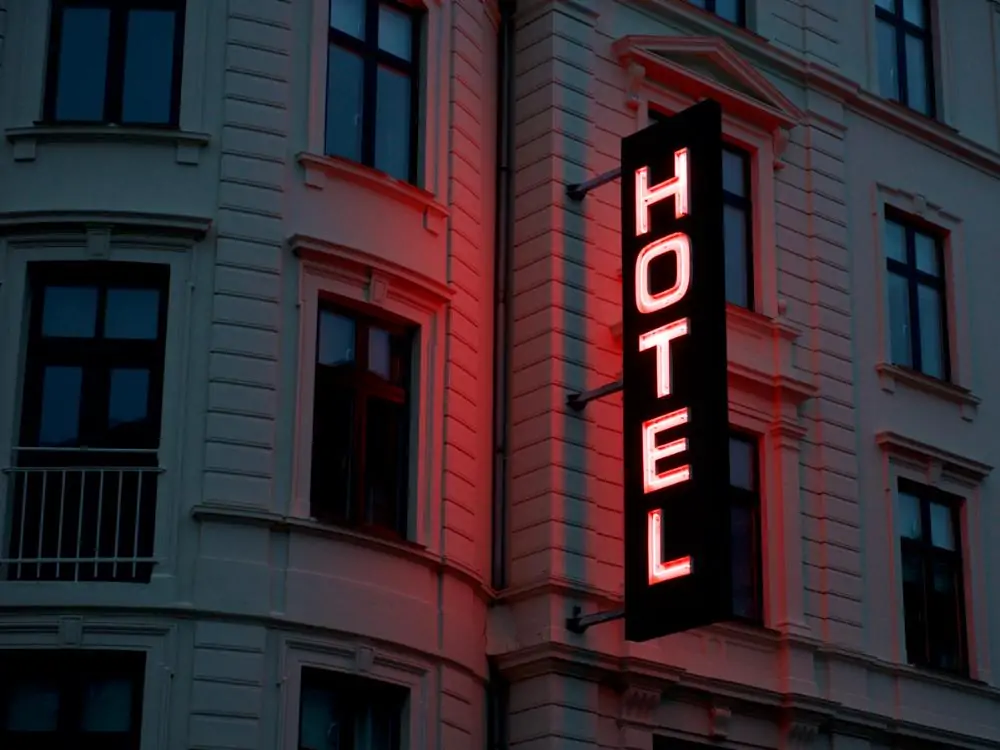
Trends in Hotel Security: Why a Do-Not-Rent List Matters
Table of Contents
ToggleIn an ever-evolving world where safety and security are paramount, the hospitality industry faces unique challenges in protecting both guests and properties. As hotels continue to strive for excellence in service, there is an increasing emphasis on adopting advanced security measures to safeguard guests, employees, and assets. One such measure gaining traction is the implementation of a Do-Not-Rent (DNR) list. This article explores the growing importance of security in hotels and highlights why a DNR list is a critical tool for protecting properties and maintaining a safe, welcoming environment.
The Growing Importance of Hotel Security
The hospitality industry has always been concerned with ensuring the safety of its guests and property. However, recent trends have amplified this focus, making security more important than ever. Several factors contribute to this heightened awareness:
 Increased Safety Concerns: Recent global events, including the COVID-19 pandemic, have heightened concerns around health and safety. Additionally, the rise in incidents such as theft, vandalism, and other forms of disruptive behavior has underscored the need for stronger security measures in hotels.
Increased Safety Concerns: Recent global events, including the COVID-19 pandemic, have heightened concerns around health and safety. Additionally, the rise in incidents such as theft, vandalism, and other forms of disruptive behavior has underscored the need for stronger security measures in hotels.- Guest Expectations for Safety: Today’s travelers are more security-conscious than ever before. According to a survey by Hospitality Technology, 72% of guests prioritize safety and security when choosing a hotel. This shift in guest expectations necessitates that hotels adopt proactive security measures to attract and retain customers.
- Reputation Management: In the digital age, a single negative incident can rapidly spread across social media and online review platforms, significantly damaging a hotel’s reputation. Hotels must prioritize security to prevent incidents that could lead to negative publicity and loss of business.
- Regulatory Compliance: Increasingly, regulatory bodies are imposing stricter safety and security requirements on hotels. Compliance with these regulations not only ensures the safety of guests but also protects hotels from legal liabilities.
Given these factors, it is clear that hotels must adopt comprehensive security strategies to address potential risks and protect their properties. One effective strategy is the implementation of a Do-Not-Rent (DNR) list.
What is a Do-Not-Rent (DNR) List?
A Do-Not-Rent (DNR) list is a database maintained by a hotel or hotel chain that identifies individuals who have engaged in problematic behaviors, such as causing property damage, violating hotel policies, or posing a safety risk to other guests and staff. The DNR list serves as a tool for hotels to manage risk by preventing these individuals from booking rooms or returning to the property.
Why a DNR List Matters for Hotel Security
Preventing Repeat Incidents
One of the most significant benefits of a DNR list is its ability to prevent repeat incidents. By identifying guests who have caused issues in the past, hotels can avoid renting to these individuals in the future, thereby reducing the likelihood of property damage, theft, or other disruptive behaviors. This proactive approach helps maintain a safe and secure environment for all guests and staff.
Protecting Property and Reducing Costs
Hotels often incur substantial costs related to property damage caused by problematic guests. Whether it’s damage to rooms, vandalism in common areas, or theft of hotel property, these incidents can result in significant repair and replacement expenses. A DNR list helps mitigate these costs by preventing high-risk individuals from staying at the property, thus protecting the hotel’s assets and bottom line.
Enhancing Guest and Employee Safety
 Safety is a top priority in the hospitality industry, and a DNR list is a critical tool for enhancing security measures. By flagging individuals who have demonstrated dangerous or disruptive behaviors, hotels can ensure that they are not allowed on the premises. This approach protects both guests and employees from potential harm, contributing to a safer environment overall.
Safety is a top priority in the hospitality industry, and a DNR list is a critical tool for enhancing security measures. By flagging individuals who have demonstrated dangerous or disruptive behaviors, hotels can ensure that they are not allowed on the premises. This approach protects both guests and employees from potential harm, contributing to a safer environment overall.
Streamlining Security Protocols
A DNR list simplifies security protocols by providing a clear, actionable tool for hotel staff to use during the booking and check-in processes. Front desk staff can quickly reference the list to identify high-risk individuals and take appropriate action, whether that involves denying a booking or alerting security personnel. This streamlined process reduces the need for reactive security measures and allows staff to focus on providing excellent service to well-behaved guests.
Improving Guest Satisfaction and Loyalty
Guests are more likely to return to hotels where they feel safe and secure. By using a DNR list to maintain a high standard of security, hotels can enhance guest satisfaction and foster loyalty. Guests appreciate knowing that the hotel takes proactive steps to ensure their safety, which can lead to positive reviews, repeat bookings, and word-of-mouth referrals.
Compliance with Safety Regulations
As regulatory bodies impose stricter safety requirements on the hospitality industry, a DNR list helps hotels comply with these regulations. By maintaining a record of problematic guests and implementing measures to prevent future incidents, hotels demonstrate their commitment to safety and security, reducing the risk of legal liabilities and fines.
Case Study: The Impact of a DNR List on Hotel Security
Consider a boutique hotel that experienced several incidents involving property damage and guest altercations. After implementing a DNR list, the hotel saw a 40% reduction in guest-related incidents within the first year. By preventing repeat offenders from booking rooms, the hotel not only protected its property but also improved the overall guest experience. Positive feedback from guests regarding the hotel’s safety measures increased, leading to a 20% boost in repeat bookings and a noticeable improvement in online reviews.
Implementing a DNR List: Best Practices for Hotels
- Establish Clear Criteria for Inclusion: Clearly define the behaviors and incidents that warrant inclusion on the DNR list. This may include actions such as property damage, theft, violence, or repeated violations of hotel policies.
- Ensure Data Accuracy and Privacy: Maintain accurate records of incidents and ensure that data is handled in compliance with privacy regulations, such as the General Data Protection Regulation (GDPR) or the California Consumer Privacy Act (CCPA).
- Regularly Update the List: Keep the DNR list current by regularly reviewing and updating it based on new incidents or changes in guest behavior.
- Train Staff on Proper Use: Train hotel staff on how to use the DNR list effectively, including recognizing high-risk individuals and handling situations professionally and legally.
- Communicate Policies Clearly to Guests: Make sure that all guests are aware of the hotel’s policies and the potential consequences of violating them. This transparency helps deter problematic behaviors and supports the use of the DNR list as a security tool.
Conclusion
In today’s hospitality landscape, where guest safety and security are more critical than ever, a Do-Not-Rent (DNR) list is a valuable tool for hotels. By preventing repeat incidents, protecting property, and enhancing safety, a DNR list plays a vital role in maintaining a secure and welcoming environment. As hotels continue to navigate the complexities of modern security challenges, adopting proactive measures like a DNR list will be essential for protecting their assets, reputation, and guests.
For hotels looking to strengthen their security strategies and provide a safer experience for their guests, implementing a DNR list is not just a practical step—it’s a necessary one in today’s evolving hospitality industry.

 Increased Safety Concerns: Recent global events, including the COVID-19 pandemic, have heightened concerns around health and safety. Additionally, the rise in incidents such as theft, vandalism, and other forms of disruptive behavior has underscored the need for stronger
Increased Safety Concerns: Recent global events, including the COVID-19 pandemic, have heightened concerns around health and safety. Additionally, the rise in incidents such as theft, vandalism, and other forms of disruptive behavior has underscored the need for stronger